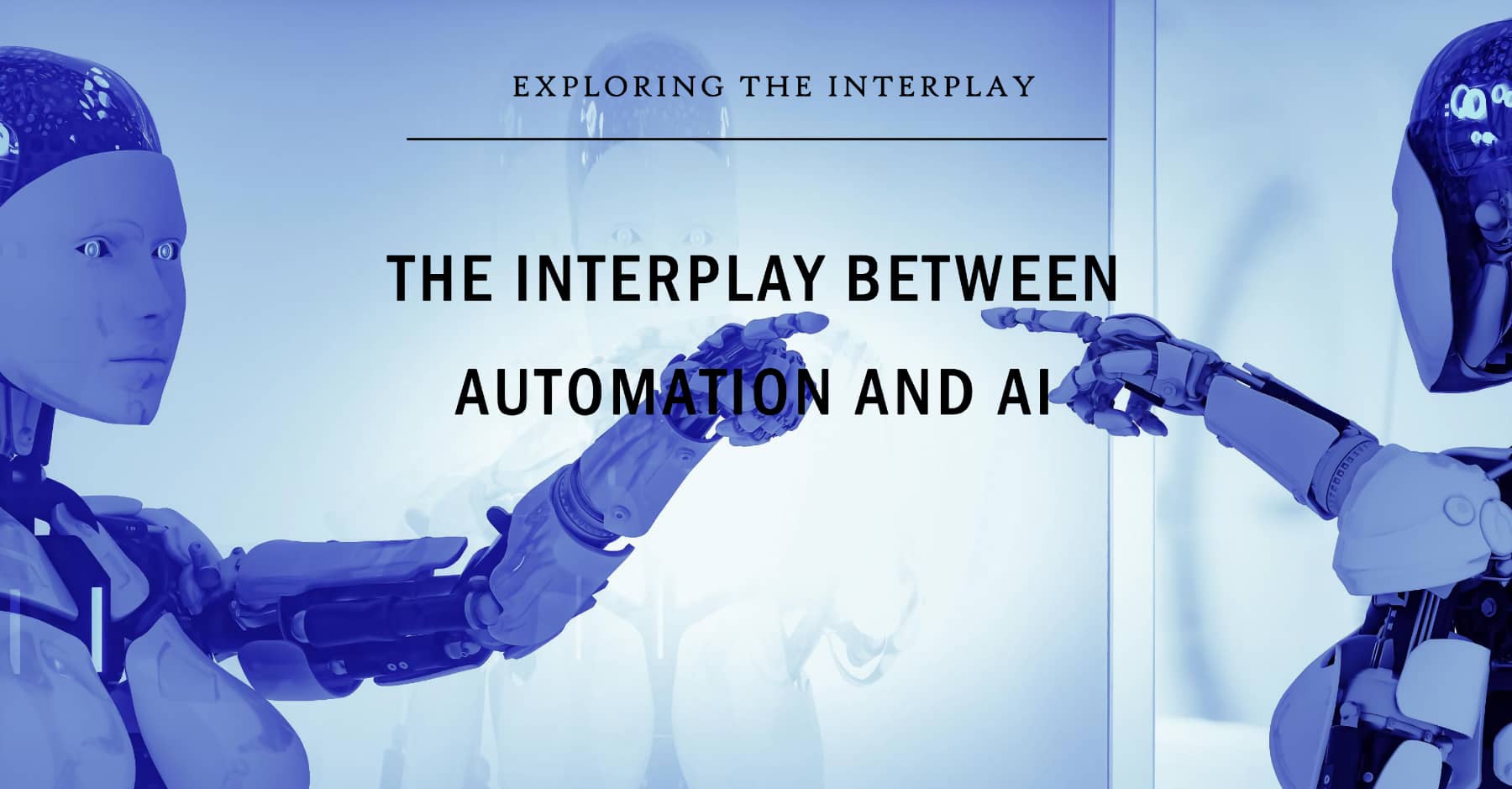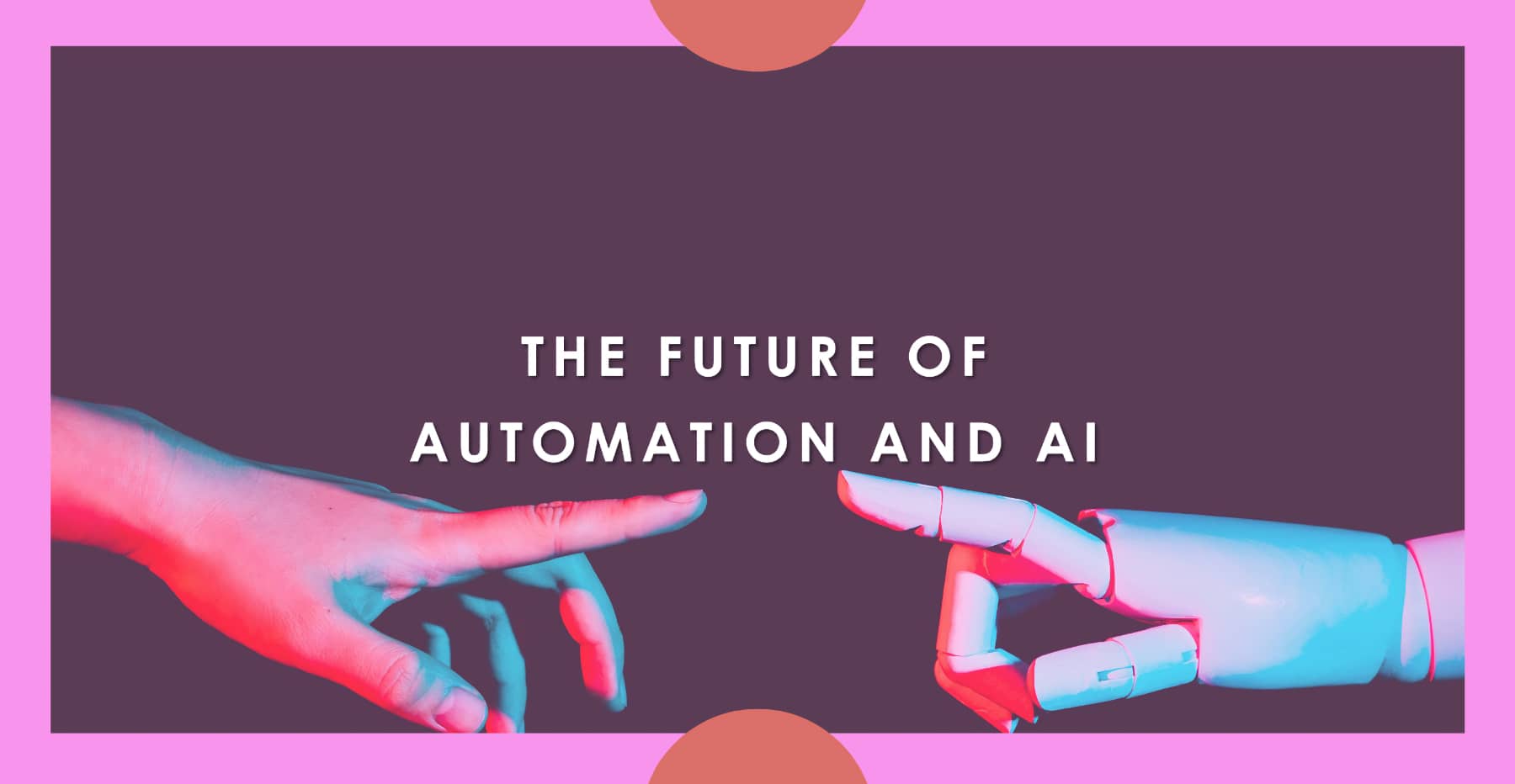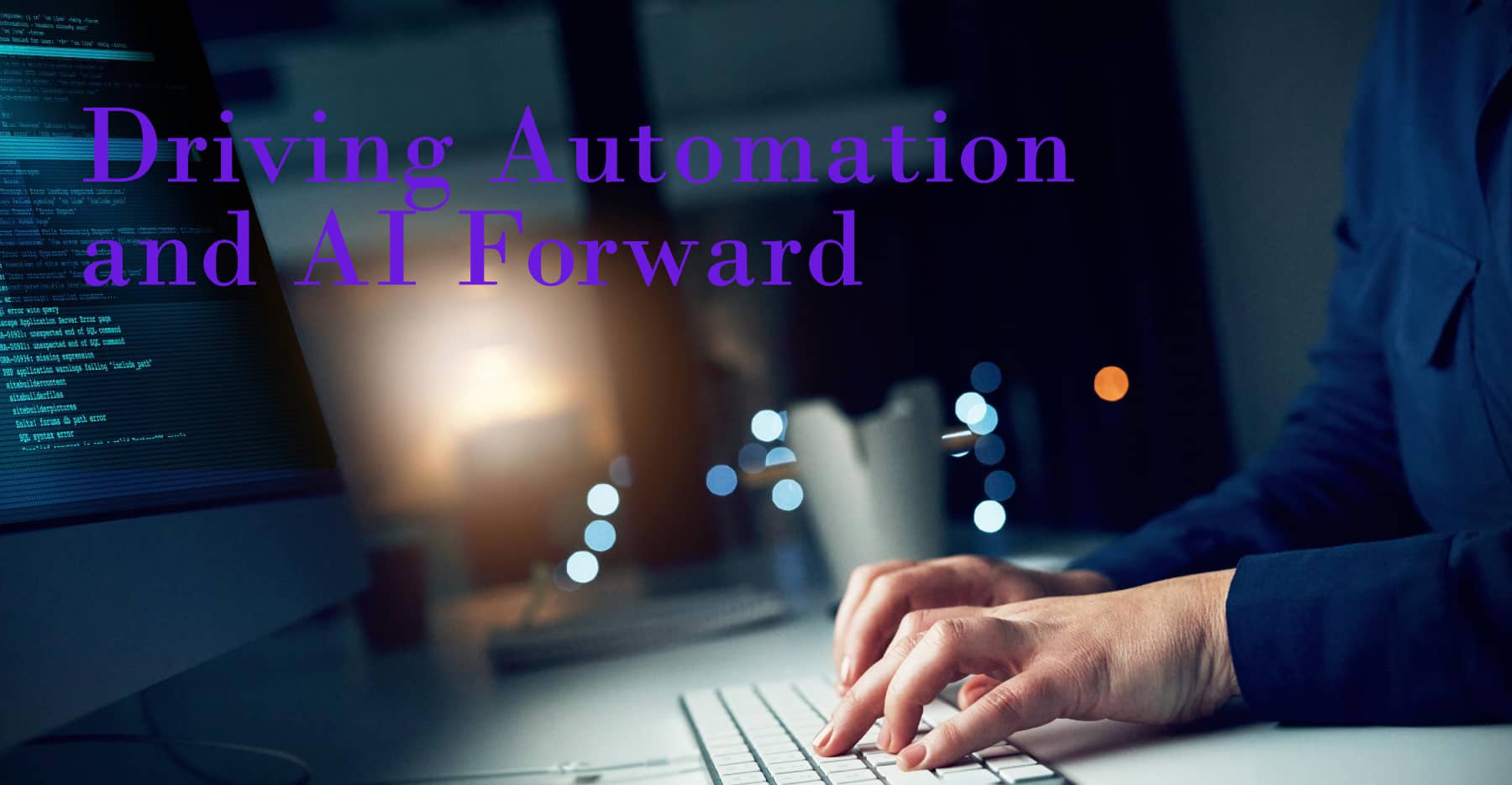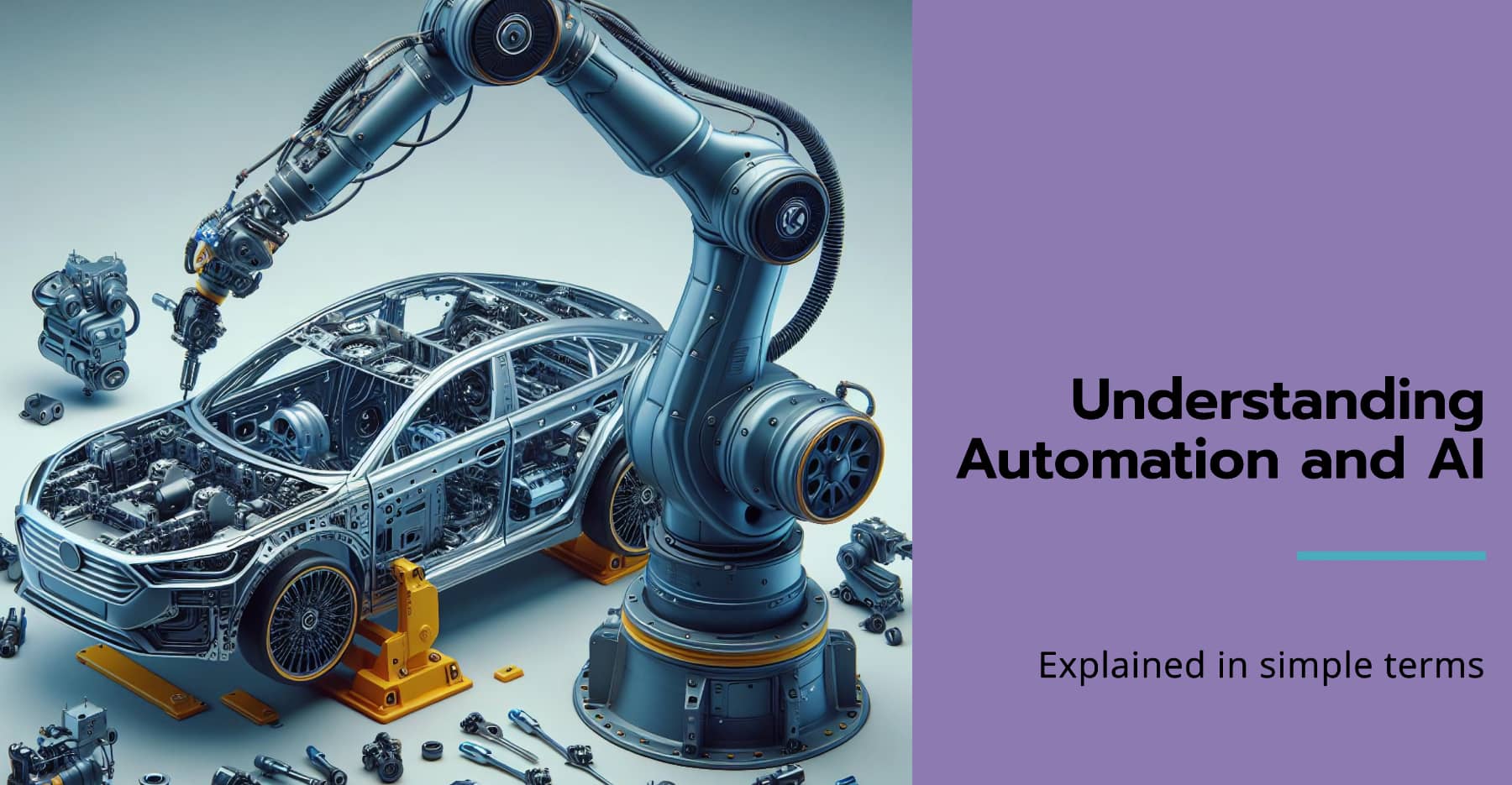"Will robots steal our jobs?" This question looms in the minds of many as automation and artificial intelligence (AI) continue to advance at remarkable speeds. These technologies have already begun transforming how we work and live. But how exactly are they reshaping our world?
What is Automation?
Automation refers to having machines or computers perform tasks previously carried out by humans. The concept isn't new - ever since the First Industrial Revolution, we've continually sought to automate repetitive and mundane work.
"If we can take the resources that you have and come up with some sort of silver bullet and that turns them into radically better efficiency for what youâre getting back, that is going to be evolutionary dynamite," zoologist Antone Martinho-Truswell explained.
Early automation examples include mechanical looms that revolutionized textile manufacturing and water wheels that converted the power of falling water into mechanical energy.
What is Artificial Intelligence?
Artificial intelligence or AI refers to software and machines exhibiting human-like intelligence. Using complex algorithms and massive datasets, AI systems can analyze information, identify patterns, learn from experience, and make decisions with varying levels of autonomy.
"AI aims to simulate human thinking. Automation works with data - AI 'understands' data," says one definition.
A subset of AI called machine learning allows systems to improve at tasks through experience without explicit programming.

The Interplay Between Automation and AI
Automation provides the tools to quickly handle vast volumes of data and tasks. AI adds a layer of intelligence to build upon automation - analyzing data patterns, optimizing processes, and enabling more dynamic decision-making.
Together, the duo forms a powerful combination. For instance, AI powers the sophisticated chatbots now handling customer queries once fielded by call center staff. And machine learning algorithms are optimizing supply chains and detecting manufacturing defects better than humans can.
Across healthcare, finance, retail, and more, artificial intelligence is taking automation to new heights. As AI capabilities grow, so too will its integration with and improvement of automation processes.
The Rise of Automation and AI
Automation and artificial intelligence may seem like new phenomena, but their origins trace back centuries. Understanding their evolution helps contextualize their incredible growth today.
The Industrial Revolution Sparks Automation's Rise
The automation story begins with the First Industrial Revolution in the late 18th century. New machines and manufacturing processes, including steam-powered looms, ushered in mass production.
These technologies sparked a wave of automating repetitive manual work - one that continues through each subsequent Industrial Revolution.
Assembly lines exemplified this relentless drive towards automation. By systematically arranging workers and machines, Henry Ford built an empire on efficient, automated production.
Of course, automation extends beyond factory floors. From mechanical calculators to the first automated teller machines (ATMs), automation became commonplace across sectors.
The Digital Revolution Accelerates Pace
The more recent Digital Revolution opened the floodgates to advancements in automation - and the advent of AI.
Sophisticated robotics and computerized automation software now handle an array of repetitive tasks. Offices utilize workplace automation tools to streamline everything from customer communications to reporting.
Simultaneously, research into AI and computing unlocked new possibilities. Machine learning and natural language processing moved from conceptual to applied. And boundaries of AI continue to be pushed - from DeepMind's AlphaGo mastering the complex game of Go to tools like ChatGPT demonstrating impressive linguistic skills.
Automation and AI Applications Across Industries
Together, automation and AI are transforming industries in profound ways:
Manufacturing
Predictive maintenance bots flagging production issues
Computer vision QA catching defects humans would miss
Customer Service
Chatbots efficiently handling high query volumes
Sentiment analysis guiding agent interactions
Healthcare
AI screening scans and aiding diagnosis
Robot-assisted surgeries enabling new levels of precision
The scope of applications is astonishing. We've only scratched the surface of automation and AI's potential.
Driving Greater Efficiency and Innovation
Fundamentally, intelligently automating tasks provides greater consistency, scalability, and efficiency. It eliminates human limitations, while enabling people to focus on higher-value work.
As AI grows increasingly sophisticated, so too will the automation it powers. Leading companies are investing heavily in integrating automation with cutting-edge artificial intelligence. It's both a competitive necessity and an incredible opportunity to innovate.

The Future of Automation and AI
Automation and AI will shape the coming decades in profound ways. While promising immense progress, their rise also surfaces pressing questions regarding ethics, jobs, and collaboration with human intelligence.
Reshaping the Future of Work
As automation and AI permeate industries, certain jobs will dwindle, while new ones emerge. Manual, routine work bears the highest risk of displacement from automated systems and bots.
A recent study suggests AI automation could replace an estimated 300 million full-time jobs over the next decade.
Conversely, roles managing these technologies and using AI tools augments human capabilities. AI won't replace radiologists, for example, but rather partner with them - highlighting anomalies on scans for their expert review.
Adapting to this shifting landscape, however, requires re-training and upskilling. Companies investing to reskill employees create more secure futures. Individuals, too, should look to diversify and grow their skill sets.
Navigating Ethical Considerations
As AI automation spreads through finance, healthcare, and beyond, we must address rising ethical concerns:
Data Privacy
Stringent protocols around data collection, usage, and protection are critical, as AI systems require vast amounts of potentially sensitive training data.
Algorithmic Bias
Flawed AI algorithms can further marginalize disadvantaged groups. Ensuring diversity and representation minimizes this risk.
Job Displacement
While driving economic growth overall, AI automation may disadvantage some. Structural support and re-training programs should accompany adoption.
Accountability
With AI playing bigger roles in high-stakes decisions, determining accountability frameworks for undesirable outcomes poses challenges.
The companies leading the AI revolution have a profound responsibility to pioneer equitable, ethical practices.
Achieving Human-AI Collaboration
Rather than AI replacing humans, the most opportunity lies in humans and AI collaborating. Each have complementary strengths. AI automation handles data-intensive, routine tasks with unwavering consistency; humans provide creativity, empathy and complex problem solving.
Symbiotic human-AI teams will achieve what neither could alone. AI makes human intelligence scalable.
Doctors partnering with AI diagnostic tools makes affordable, high-quality healthcare accessible to all. Generative AI could help content teams create more personalized, engaging materials.
Finding the optimal balance remains an evolving journey. But the possibilities paint an inspiring future.

Steering Automation and AI Towards a Brighter Future
As the previous sections explored, automation and artificial intelligence are reshaping society in profound ways - propelling innovation while kindling important ethical questions.
Automation + AI = Extraordinary Efficiency Gains
Intelligently embedding AI into automated industrial and business systems enables great strides in productivity, accuracy, and consistency. The duo serves as a launchpad towards a more advanced economy and higher living standards.
Adopting an Inclusive, Responsible Mindset is Imperative
Of course, progress hinges on building automation and AI thoughtfully: prioritizing worker welfare through upskilling, safeguarding transparency and ethics, and seeking human-machine collaboration versus replacement.
The astronomical pace at which these exponentially advancing technologies progress can feel disorienting. But by upholding human values like compassion and dignity, we can anchor automation and AI to broadly enrich society.
Policy, corporate responsibility, research ethics - these will shape the backdrop for emerging innovations. And as individuals, too, we must champion ethical development through the products we use, leaders we elect, and discussions with our community.
The Future is Unwritten
How the story unfolds remains undetermined. With vigilance, care and a cooperative spirit across public and private spheres, we can steer automation and AI towards unprecedented human flourishing. Our shared future demands nothing less.


